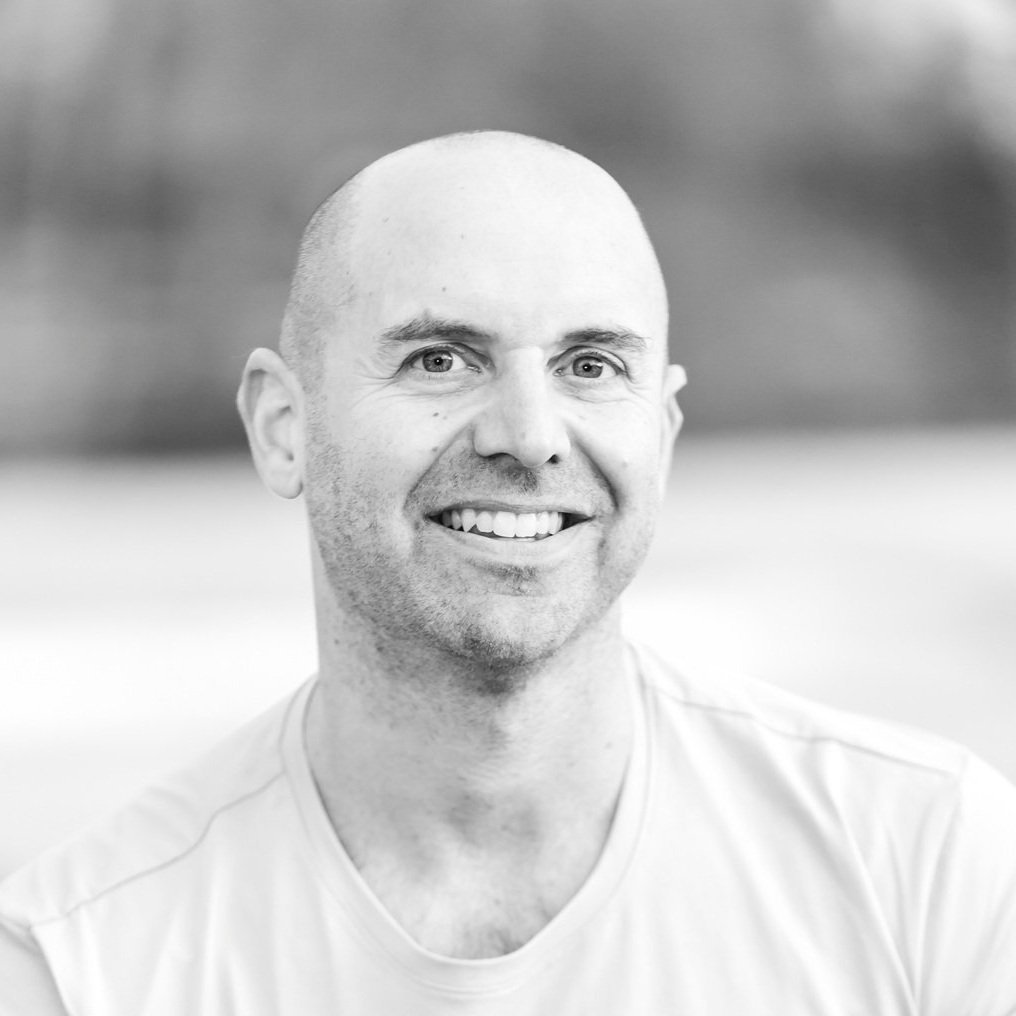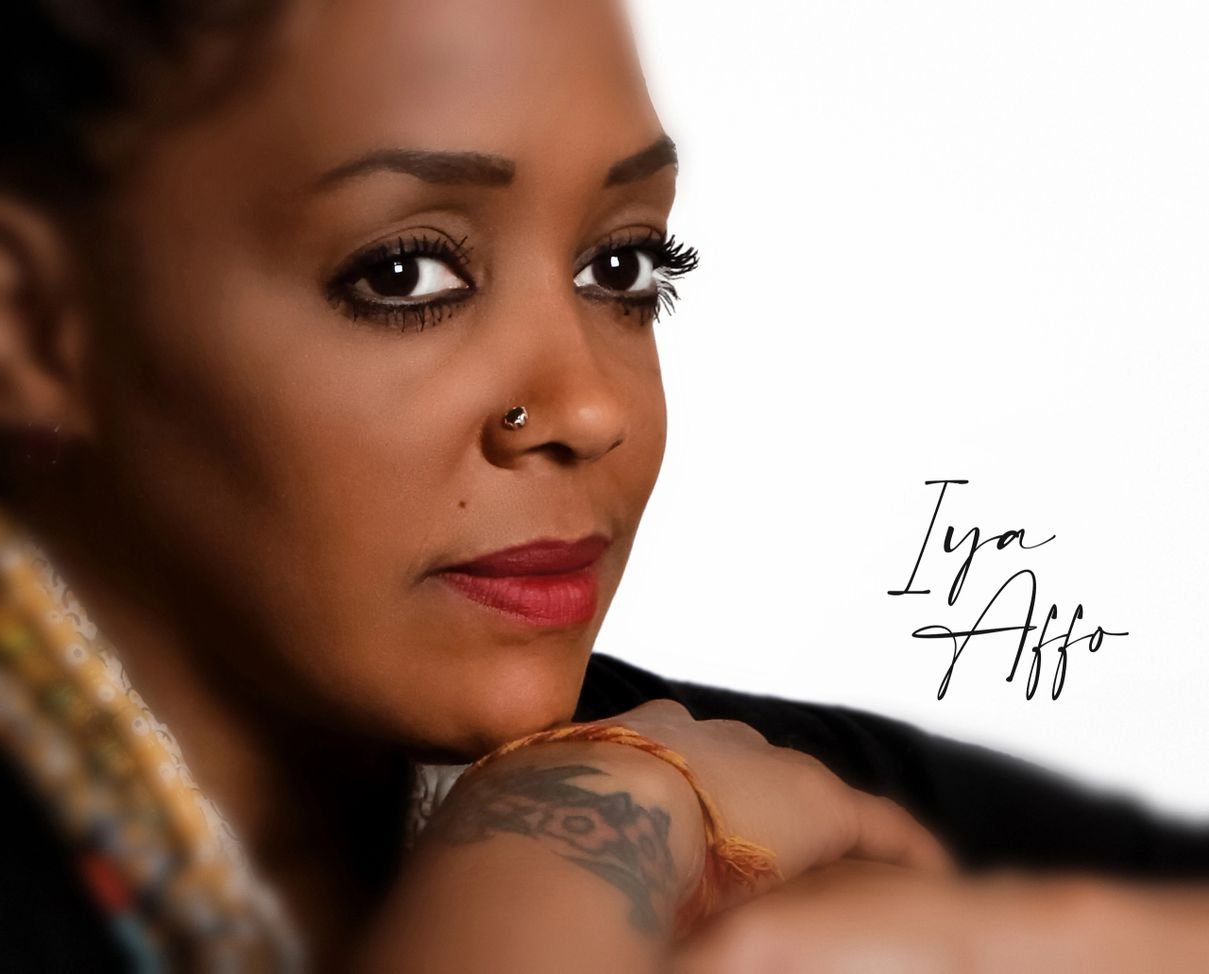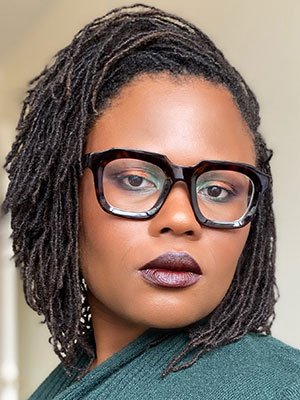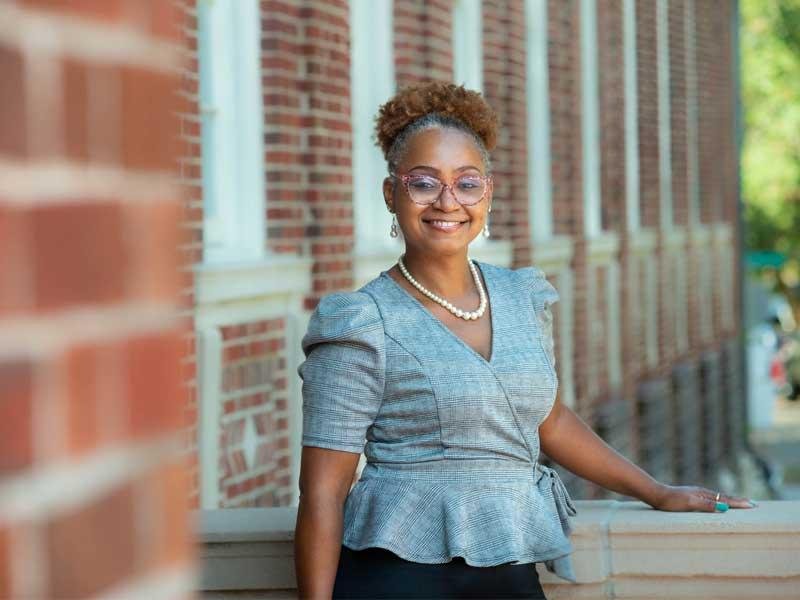Whatsjust presents Critical Conversations
Dr. Abbie Henson dives into critical conversations with those who have been directly impacted by the criminal justice system- whether through lived experience, research, or both. These conversations get into the weeds on complex justice-related issues and encourage listeners to think critically, challenge existing narratives, and cultivate change through dialogue.
Guided by the belief that systemic change stems from individual change and individual change stems from exposure to new ideas and a heightened awareness of self and others, the purpose of this podcast is to ultimately inspire transformation in both the listeners and, ultimately, the criminal justice system.
Step Four: Creating Safety in Conflict with Dr. Peter T. Coleman
Dr. Peter T Coleman is a professor of psychology and education at Columbia University and a renowned expert on constructive conflict resolution, intractable conflict, and sustaining peace. His most recent book, The Way Out: How to Overcome Toxic Polarization focuses on breaking through the intractable polarization plaguing the U.S. and other societies.
In this episode, we:
discuss the benefit of conflict
explain how to navigate political discussions with family, friends, and strangers
identify the importance of tolerance
provide tools for conflict resolution
Step Three: Cultivating Curiosity with Dr. Todd Kashdan
Dr. Todd B. Kashdan is a professor of psychology at George Mason University, and a leading authority on well-being, curiosity, courage, and resilience. He is the author of The Art of Insubordination, Curious? and The Upside of Your Dark Side.
In this episode, we:
define curiosity
identify ways to become more "psychologically flexible"
discuss why curiosity is key to conversation
provide tangible tools to cultivate curiosity
Step Two: Recognizing Personal Biases with Dr. Rodolfo Mendoza-Denton
Dr. Rodolfo Mendoza-Denton is a professor of psychology and co-director of the Relationships and Social Cognition Lab at the University of California, Berkeley In this episode, we:
define the three elements of bias
discuss the importance of bias in critical conversations
examine how bias is an outcome of fear
provide tangible practices to address personal biases
Step One: Becoming Self-Aware with Dr. Rick Hanson
Dr. Rick Hanson is a psychologist, senior fellow at UC Berkeley's Greater Good Science Center, and New York Times bestselling author of seven books, including Buddha’s Brain, Neurodharma, and Hardwiring Happiness.
In our conversation, we:
define mindfulness and self-awareness and contrast the two
discuss the importance of self-awareness in critical conversations
unpack the science behind self-awareness
provide tangible practices to becoming more self-aware
What Happened to You? with Dr. Bruce Perry
Dr. Bruce Perry is a neuroscientist, developmental psychiatrist, and New York Times best-selling author of The Boy who was Raised as a Dog, and What Happened to You? co-authored by Oprah Winfrey .
In our conversation, we discuss:
why we need to start asking "What happened to you?" rather than "What's wrong with you?
how relationships and connection can counterbalance the negative health impacts of trauma
how our brains interpret stress and influence our abilities to cope
Can Self-Care Prevent Police Shootings? with Iya Affo
Iya Affo is the founder of Heal Historical Trauma Culture Wellness Academy, and the International Historical Trauma Association.
In this episode, we discuss:
how trauma creates neurological dysregulation
how self-care can be used as a stress-prevention tool
why it's important to teach police about historical trauma
Are Credit Scores Racist? with Ashley Bell
Ashley Bell is the CEO of Readylife, a new Black-owned bank that is making homeownership more achievable for those often left out of the global economy.
In this episode, we discuss:
the racist history of the American banking system
the truth behind how credit scores are created
how homeownership is a key component for racial equity
Can Prisons be Humane? with Dr. Jordan Hyatt
Dr. Jordan Hyatt is an associate professor in the Department of Criminology and Justice Studies at Drexel University, where he also sits as director of the Center for Public Policy.
In this episode, we discuss:
a pilot program in a Pennsylvania prison that is attempting to emulate the Scandinavian prison model
how the prison environment impacts correctional officers
whether it's possible for prisons to be humane places
Should We Abolish Prisons? with Are Hoidal
Are Hoidal is the Senior Advisor for the Norwegian Correctional Service and recent author of The Norweigan Prison System: Halden Prison and Beyond. For 14 years, Are served as the prison warden at Halden prison, known to be the most humane prison in the world.
In this episode, we discuss:
the importance of rehabilitation versus retribution
how to lower recidivism rates in the United States
why treating incarcerated individuals with respect and dignity creates positive outcomes
whether the Halden model can be incorporated into the abolitionist agenda
Can We Cure Violence? with Dr. Fredrick Echols
Dr. Fredrick Echols is the Chief Executive Officer of Cure Violence Global, a violence prevention organization. Prior to becoming CEO of CVG, Dr. Echols served as the Director of Health and Health Commissioner for the City of St. Louis and was a physician in the U.S. Navy.
In this episode, we discuss:
the reason for the uptick in violence during the COVID-19 pandemic
why a "for us by us" approach to violence prevention is more effective than traditional criminal legal models
how our social context impacts our health
how to reach equity in the health, wellness, and safety space
Should We Legalize All Drugs? with Dr. Carl Hart
Dr. Carl Hart is a neuroscientist and professor of Psychology at Columbia University and is also the author of Drug Use for Grown-Ups: Chasing Liberty in the Land of Fear.
In this episode we:
uncover the benefits of drug use
debunk several myths including that (1) drugs destroy the brain, and (2) drugs cause violence and crime
discuss the feasibility of drug legalization
examine the importance of harm reduction efforts, including drug testing
provide listeners data to support the argument for alternative solutions to preventing harm and violence
Can We Actually Abolish the Police? with Dr. Alex Vitale
Dr. Alex Vitale is the author of End of Policing, a Sociology professor at Brooklyn College, and the coordinator of the Policing and Social Justice Project. He has spent the last 25 years writing about policing and consults both police departments and human rights organizations internationally.
In this episode we:
unpack the differences between the concepts of police abolition and police reform
discuss the social and financial costs of policing
examine existing community-based and state-led interventions beyond policing that are found to enhance public safety
provide listeners data to support the argument for alternative solutions to preventing harm and violence
Getting Healthy Through Healing with Dr. Wright
Dr. H. Jean Wright is the Deputy Commissioner for Philadelphia’s Department of Behavioral Health and the Director of the Behavioral Health and Justice division.
In this episode, we discuss
social determinants of health
how the criminal justice system impacts the health of all those in contact with it
tangible ways to create a healthier society
Dying to Live in Prison with Stacey Torrance
Stacey Torrance was sentenced to life without the possibility of parole at the age of 14. Upon the supreme court ruling that sentencing children to life without parole was unconstitutional, Stacey was released after 30 years in prison.
In this episode, we speak about
how he maintained hope throughout his sentence
the harsh reality check he confronted upon returning home
his experiences with restorative justice
how proximity and conversation can challenge assumptions and contribute to the healing process
How Prison Impacts the Mind, Body, and Soul with Abd'Allah Lateef
Abd’allah Lateef is the Senior Strategic Advisor and Racial Equity Specialist at the Campaign for the Fair Sentencing of Youth. Sentenced to life without the possibility of parole as a child, Abd’allah was resentenced and released in 2017 after spending over 30 years in prison.
In this episode, we discuss
how the effects of prison on the mind, body, and soul
how public safety can and should be achieved by restoring community rather than seeking retribution
Locked In During Lockdown with Michael A.
Michael A. is a teaching assistant at the University of Kent in England and motivational speaker. Michael was incarcerated at the age of 16 and spent 12 years in the UK prison system and was released in the summer of 2020.
In this episode, we speak on
how police action can instigate criminal engagement
what it was like to be incarcerated and released during a global pandemic
how the prison experience incites PTSD
Tangible Solutions to America's Policing Crisis with Dr. Rashawn Ray
Dr. Rashawn Ray is a fellow at The Brookings Institution, and a Sociology Professor and the Executive Director of the Lab for Applied Social Science Research at the University of Maryland.
In this episode, we discuss
public health issues stemming from racism.
tangible solutions to America’s policing crisis, including abolishing qualified immunity, implementing insurance policies and malpractice liability for individual officers, and providing officers with housing subsidies to live in or around the communities they patrol.
Women's Unique Paths to Prison with Kamilah Newton
Kamilah Newton is a writer, advocate, and previous participant of Justice Home, an alternative to incarceration program hosted by the Women’s Prison Association. This episode exposes the unique gendered experience of the criminal justice system, highlighting the cycle of victimization and the pervasiveness of trauma that the majority of justice-involved women experience.
In this episode, we discuss
what it is like being a mother to Black children in America today
what it is like being a co-parent to an incarcerated father
what her personal experience was like with the criminal justice system
how to think critically about what safety means
what victims need from first responders
Thinking Beyond the Binary of "Violent" and "Nonviolent" Offenders with Michael Fischer
Michael Fischer is a writer, activist, and advocate. Michael was incarcerated for 2 years in upstate New York.
In this conversation, we speak about
how social connections significantly impacted his opportunities upon re-entry
how his whiteness and the location of his arrest impacted his experiences with the criminal justice system
how to hold individuals accountable and increase public safety without relying on prisons
how the binary constructs of "violent" and "nonviolent" offenders are detrimental to the pursuit of equity and justice.
Reducing Harm through Anti-Segregation Policing and Community Racism Response Funds with Dr. Monica Bell
Dr. Monica Bell is an Associate Professor of Law as well as an Associate Professor of Sociology at Yale University.
In our conversation, we speak about
anti-segregation policing
community racism response funds
the importance of combating complacency in reformist efforts
the importance of holding the community accountable for individual acts of routine racism.
Fighting for Freedom Following a Wrongful Conviction with Carl Williams
Carl Williams was arrested at the age of 17 for a murder he did not commit. After waiting in jail for 3 years pre-trial, Carl was ultimately sentenced to life without parole. For 23 years, Carl maintained his innocence in prison and fought for his life. Finally, in August of 2020 , Carl was released...into a global pandemic.
This conversation touches on
what it means to be free as a Black man in America
the importance of holding criminal justice agents accountable for "taking innocent lives"
the long-lasting impact of the prison experience.
The Profound Harms of Prison with Dr. Reuben Jonathan Miller
Dr. Reuben Jonathan Miller is an assistant professor in the Crown Family School of Social Work, Policy and Practice at the University of Chicago and author of the new book, Halfway Home: Race, Punishment, and the Afterlife of Mass Incarceration. Dr. Miller’s book tells the story of prison release and community reentry through the experiences of individuals he worked with closely and followed for over a decade.
In our conversation, we discuss
how disadvantage is the root of crime, which is cultivated and perpetuated by our laws and criminal justice policies
the difference between true accountability and our present forms of punishment
how prisons do not adequately achieve safety for anyone in our society.
the importance of creating a sense of belonging for all
Bonus Episode: A Reflection on the Last 10 Episodes
There has been A LOT of critical content delivered over these last 10 episodes- here is your cheat sheet. In this episode, Abbie highlights the main takeaways and over-arching themes throughout and draws attention to possible solutions for a more just society.
It's Not About Right and Wrong When It's About Survival with Maleek Jackson
In this episode, I speak with Maleek Jackson, owner of Maleek Jackson Fitness Boxing Gym in Philadelphia. Maleek spent 10 years in prison from ages 16-26 and in our conversation, we contextualize criminal behavior, interrogating how, for those in the streets, it is not about “right” or “wrong” but about doing what you need to do to survive with the limited opportunities available. We discuss how chaotic environments, resulting from racist systems and structures, tend to muffle positive messages promoted through community-based programs, mentors, and old heads. Maleek describes the individuals who influenced him throughout his life, for better or worse, and emphasizes the multifacetedness of each individual’s identity. Ultimately, this conversation serves to humanize those so often demonized, complicate deficits-based narratives about those deemed “bad” and provide insights into the influential and often conflicting roles of mentors and environments.
Street Hustling as a Site of Resilience with Dr. Yasser Payne
This episode challenges pretty much everything we know and think about the concept of resilience. Dr. Payne explains how resilience is traditionally a value-laden construct that is seen as synonymous with “goodness” or “morality.” Dr. Payne makes the argument that resilience is simply action that serves to perpetuate an individuals survivability, and cites gun violence, drug dealing, pimping and other street hustles as examples of resilience. We discuss how Black oppression is a requirement for white wealth and how notions of resilience, particularly when used to describe marginalized communities, and capitalism are intrinsically tied. Listeners are encouraged to keep an open mind throughout the discussion as it turns most pre-existing definitions and beliefs about racial and social politics on their head.
Policing Blackness in Suburban Spaces and Beyond with Dr. Andrea Boyles
This episode features a critical conversation with Dr. Andrea Boyles, visiting professor of Sociology and Africana Studies at Tulane University. Dr. Boyles is also the author of two books: You Can’t Stop the Revolution: Community Disorder and Social Ties in Post-Ferguson America and Race, Place, and Suburban Policing: Too Close for Comfort. In today’s episode, Andrea speaks about how place impacts police encounters, specifically for Black folks in suburban spaces, and how, in order to understand the extent of the tenuous relationship between police and minoritized communities, it is necessary to examine the cumulative and escalating officer-civilian interactions that often occur prior to a police shooting. The conversation touches on why policy change is imperative for holding systems accountable and creating a more equitable society and concludes with a discussion on how police brutality and interpersonal community violence are both outcomes of the same racist practices. Andrea spits fire in this episode and I strongly suggest having a pen and pad handy.
Empowering the Community from Within with Gregory Coachman
In this episode, I am joined by Gregrory Coachman, a Philadelphia-based social entrepreneur and the founder of the lifestyle brand, Urban Recreation. The original audio draws from a webinar that took place during the height of the summer 2020 protests and highlights how the kinds of contentious interactions with police that we saw during the protests are a part of everyday life for many young Black folks in marginalized communities. This discussion also focuses on the importance of empowering the community from within and drawing from community members' existing strengths. Greg encourages listeners to consider their own expertise and to donate knowledge rather than to simply donate money. Finally, our conversation investigates how to speak with those who hold opposing views, noting the importance of conversation and curiosity and how, in order to be heard, it is imperative to listen.
The Borderwall, Prisons, and Other False Symbols of Safety with Laiken Jordahl
In this episode, I speak with Laiken Jordahl, a Borderlands Campaigner with the Center for Biological Diversity. In our conversation, Laiken describes the devastation that the border wall is wreaking on the land, wildlife, and indigenous communities. We speak about how, like prisons, the border wall serves as a false symbol of safety that is touted to make "America" secure but, in reality, is causing direct harm to American communities. Laiken schools us on the legal loopholes that have justified the destruction of indigenous sacred sites and shares stories of activism occurring in indigenous communities. If you would like to support tribal land and the communities most impacted by the wall construction, please consider donating to the Oodham Land Bail Fund.
Mass Incarceration and The Missing Men with Dawan Williams
During his 10 years in prison, Dawan Williams was able to meet some of society's "Missing Men." These men served as mentors and guided Dawan into a process of change. Since returning home 6 years ago, Dawan has dedicated his life to mentorship and serves as the coordinator for Mural Art's Restorative Justice Guild program and as the program director for No'Mo. In this episode, Dawan describes the impact of paternal incarceration, the importance of personal accountability, and how to respond to crime in restorative and productive ways. Ultimately, he explains how responding with compassion and support is a far better deterrent of future crime than punishment.
Redemption, Change, and the Importance of Building Community Capacity with Dr. Nikki Jones
Dr. Nikki Jones is a professor in the Department of African American Studies at the University of California, Berkeley, and the author of two books, Between Good and Ghetto: African American Girls and Inner-City Violence and The Chosen Ones: Black Men and the Politics of Redemption. In this episode, we speak about the differences between internal and external motivations and expectations for redemption, particularly for those who have served time in prison. We speak about the need for opportunities to "do good" in the community to demonstrate personal growth, and explore how Black men with criminal records navigate the difficulties often faced when attempting to distance themselves from the criminal label. The episode concludes with a discussion on how many of those who have contributed to racial inequality in America are now attempting to seek their own redemption and what a redeemed society might look like.
Abolition, the Purpose of Punishment, and Defining Justice in America with Juwan Bennett
In this episode, I am joined by co-creator of Whatsjust, co-founder of the Urban Youth Leadership Academy in Philadelphia, and Criminal Justice Ph.D. candidate, Juwan Bennett. Juwan and I attended graduate school together and were both mentored by a pioneering prison abolitionist, Kay Harris. Together, we unpack the concept of abolition and provide a brief history of police and prisons in America. Juwan and I challenge the purpose of punishment and what we deem criminal- acknowledging how the law is fluid and everchanging. In addition, we interrogate how we define justice and whether our means of achieving justice are outdated (spoiler: they are). This conversation should inspire critical thought and ultimately shift worldviews.
Parents in Prison, Positive Trauma Responses, and the Implicit Racism of "Resilience" with Dr. Whitney Hollins
We’re back with the next Critical Conversation! In this episode, I am joined by Dr. Whitney Hollins, educator, advocate, researcher, and justice-impacted individual. Dr. Hollins’s father was in prison for 25 years of her life. According to the common narratives about children of incarcerated parents, Dr. Hollins was *at-risk* for being incarcerated herself. However, she went on to receive her Ph.D. and has dedicated her life to shifting these narratives and calling out the systems that stigmatize, adultify, and criminalize children who have experienced parental incarceration. This is a very critical conversation that highlights the importance of language and encourages listeners to challenge and expand their worldviews.
Getting Out of Prison through Expanders and Positive Delusions with Chris Wilson
Chris is a social entrepreneur, storyteller, artist, social justice advocate, and author of The Master Plan: My Journey from Life in Prison to a Life with Purpose. After spending 16 years in prison, Chris has spent the last 8 years in the Baltimore community dedicated to easing the reentry process for others and immersing himself in the arts. I have had many people reach out to me over the last several months asking how they can contribute to *the cause* of social justice. With this in mind, Chris and I will be discussing his story and how to frame your practice and passion so that your daily work has a greater and more positive social impact. For more about Chris Wilson check out https://chriswilson.biz/


























